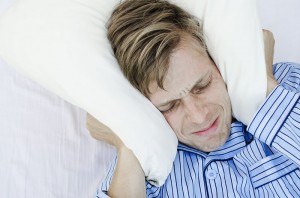 If you have recently been diagnosed with one of the major sleep disorders, you may be unaware of the latest treatment options. Sleep apnea can disrupt the body’s normal nighttime rhythms. You may even find yourself suffering from snoring, headaches, TMJ (temporomandibular) pain, or bruxism, which is the excessive grinding of teeth while asleep. Because many of these issues are intimately tied to the mouth itself, dentists should be able to help. With a reputable dental professional attending to your disorder, you can eliminate your discomfort and once again pass the night hours in the gentle arms of sleep.
If you have recently been diagnosed with one of the major sleep disorders, you may be unaware of the latest treatment options. Sleep apnea can disrupt the body’s normal nighttime rhythms. You may even find yourself suffering from snoring, headaches, TMJ (temporomandibular) pain, or bruxism, which is the excessive grinding of teeth while asleep. Because many of these issues are intimately tied to the mouth itself, dentists should be able to help. With a reputable dental professional attending to your disorder, you can eliminate your discomfort and once again pass the night hours in the gentle arms of sleep.
Sleep apnea itself, which involves an obstruction in the respiratory passageways during slumber, is often accompanied by excessive snoring. Snoring is especially frustrating for significant others who are trying to get a good night’s rest themselves. Dentists use special oral appliances to calibrate the mouth so that the obstruction is no longer present. There are two major devices that are used. Mandibular advancement devices are mouthguards that force the lower jaw into a more open position. Tongue-retaining devices, on the other hand, use splints to prevent the tongue from falling toward the back of the mouth. Dentists and orthodontists, of course, will need to ensure that the devices fit the mouth properly.
The benefits for longtime apnea sufferers are generally quite profound. If you have a habit of sleeping on your back or your stomach, then your new oral device will likely lead to some considerable improvement. Likewise, if you are prone to grinding your teeth during the night, a mouthguard will prevent this from occurring. In most cases, the headaches that have been associated with the bruxism will also stop. When you can begin the day without any residual pain, you will also be happier and more productive at work or school.
Reputable dentists will likely be capable of finding a solution to your sleep disorder. During the preliminary consultation, the dentist will ask you for a full list of symptoms. Once the dental professional has an idea of which particular sleep disorder is present, a comprehensive treatment plan can be devised. With the help of a sophisticated oral device, your passageways can be cleared from obstruction. For help with sleep apnea and other similar maladies, contact your dentist today for further assistance.